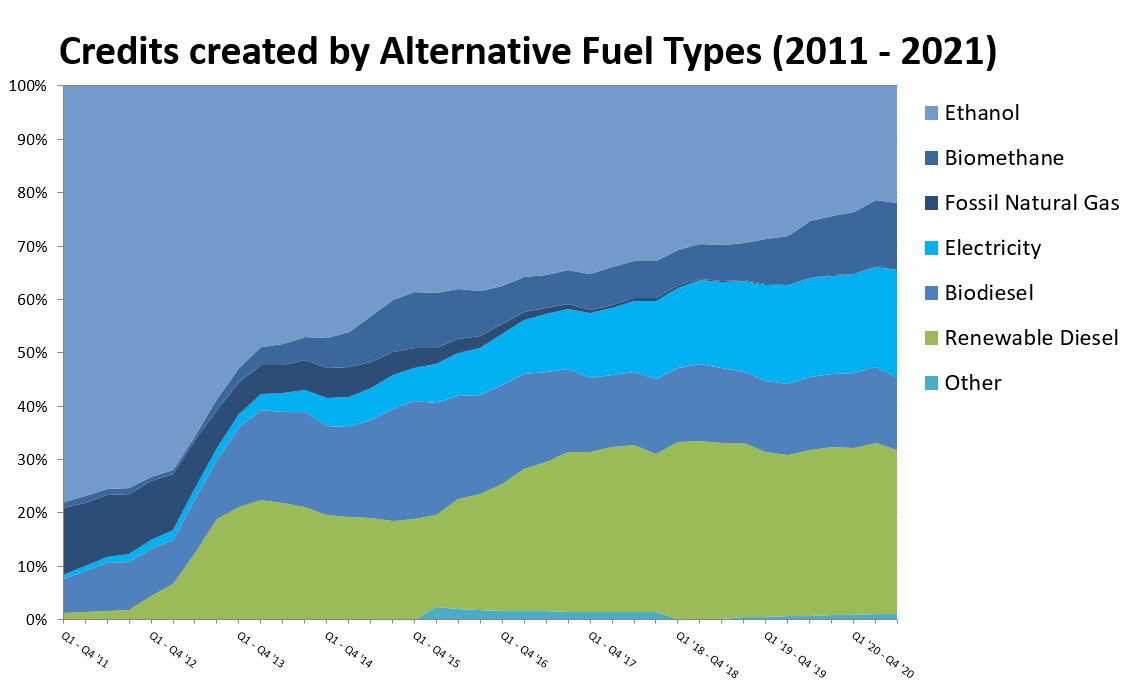California Low Carbon Fuel Standard begins public input process to define the Future of the LCFS program.
Proposed Updates to the LCFS Program
CARB has initiated the public input process to evaluate proposed updates to the Low Carbon Fuel Standard (LCFS) regulation. The process kicked off with a public input workshop in December, attended by nearly 500 participants. The event provided a forum for CARB to present potential updates to the future LCFS program across a wide range of policy aspects that would go into effect in 2024 (at the earliest).
Some of the key proposed future changes to the LCFS program include:
- Tightening the permitted carbon levels in transportation fuels (called the Carbon-Intensity Score) beyond 2030. This widely anticipated update would continue to drive incentives for low carbon fuels, like electricity and green-hydrogen.
- Consider addition of new eligible vehicle classes (like agricultural equipment and off-road heavy equipment).
- Expanding the types of fuels subject to the program to include jet fuel for intra-state flights
- Increasing verification and validation methods for fuel producers and credit generators to ensure all participants are receiving appropriate carbon scores.
PineSpire Advocates for Inclusion of Agriculture and Off-Road Equipment
PineSpire has submitted comments to CARB on the proposed rule changes to advocate for the inclusion of agricultural vehicles, improve the efficiency of reporting, and to strive to create a level playing field across vehicle and fuel types. You can see PineSpire’s comments here.
We want to amplify the voices of our food and agricultural community for inclusion in this revenue-generating opportunity. As available alternative fuel equipment (i.e. hydrogen and electric) becomes more readily available for the field and farm, it is important to advocate for the equipment to be eligible to generate LCFS credits. Being eligible in the future LCFS program would help reduce the cost of owning and operating alternative fuel equipment and staying in compliance with evolving air quality regulations.
What’s Next?
The rulemaking process is just at the beginning. PineSpire will continue to participate and keep our customers informed on the direction the new policy measures take and how that can create additional LCFS revenue opportunities. To receive regular updates, you can ask to subscribe here. If you have unique story or business perspective to share with CARB, reach out to us and we can help ensure your comments and business needs are considered in the rulemaking process.
